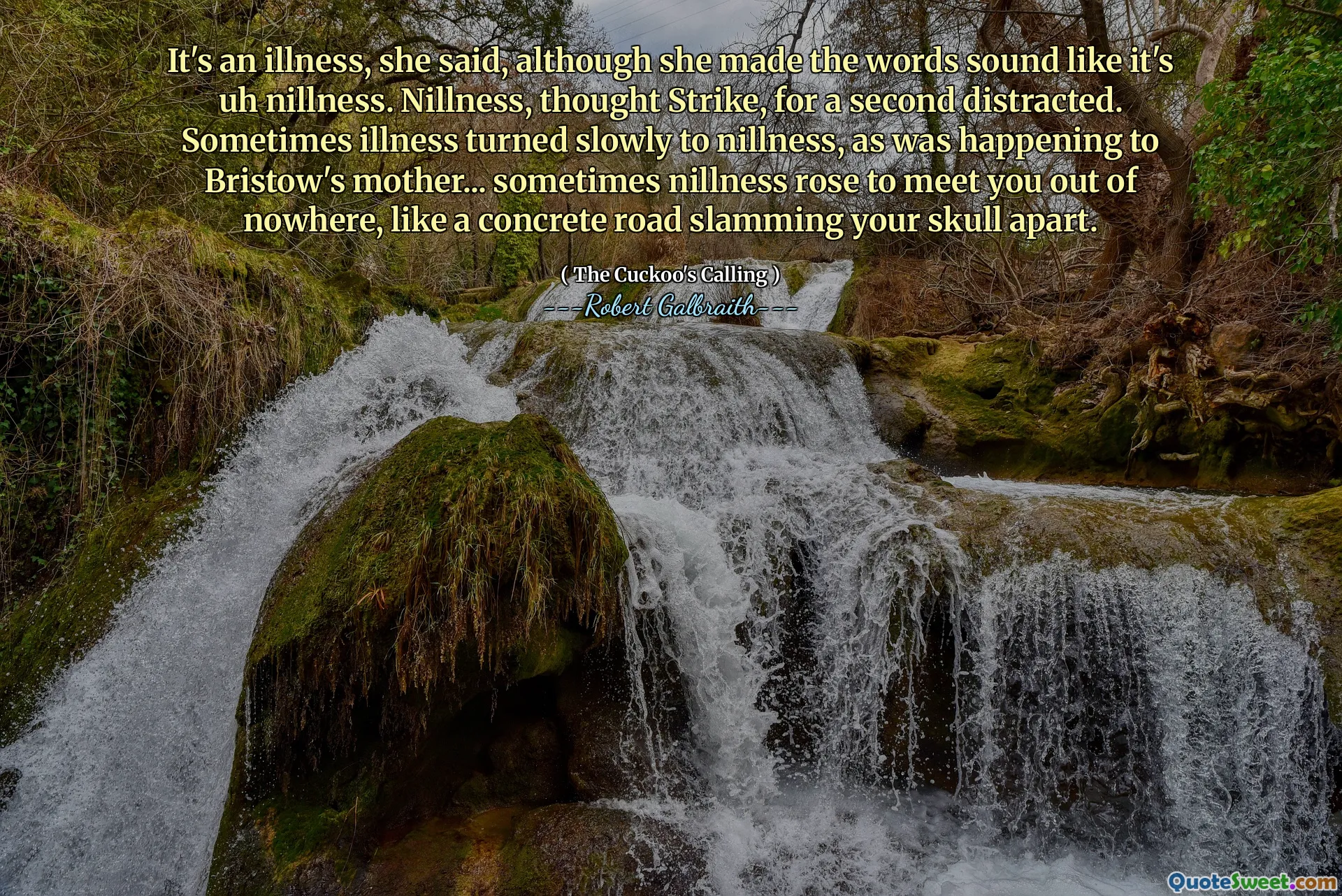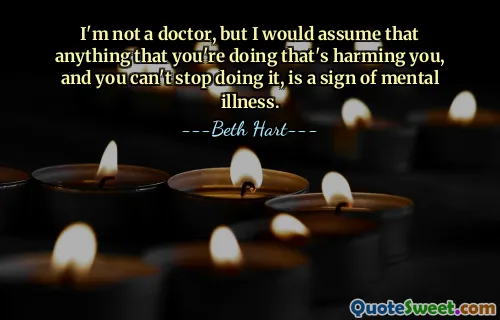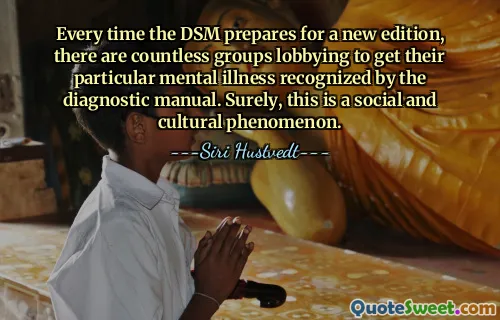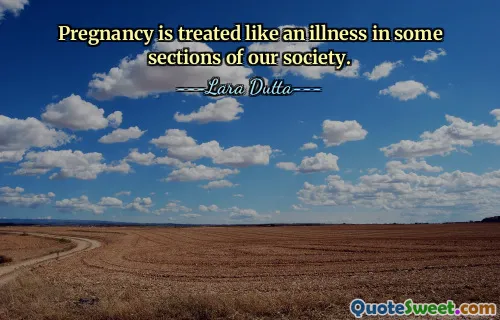
It's an illness, she said, although she made the words sound like it's uh nillness. Nillness, thought Strike, for a second distracted. Sometimes illness turned slowly to nillness, as was happening to Bristow's mother... sometimes nillness rose to meet you out of nowhere, like a concrete road slamming your skull apart.
[Markdown format] The quote explores the ambiguous and often insidious nature of illness, both physical and psychological. The way the character articulates the term as "nillness" suggests a subtle distortion—perhaps an attempt to minimize, internalize, or reframe the experience of suffering. The phrase evokes a sense of fading or diminishing health, not always due to overt disease but also as a gradual transformation that creeps into one's life, often unnoticed until it becomes overwhelming.
The imagery used—comparing sudden illness to a "concrete road slamming your skull apart"—vividly encapsulates the shock and violence that illness can inflict unexpectedly. It underscores the unpredictable nature of health crises: sometimes, illnesses develop slowly over time, eroding vitality and clarity in a subtle, almost unnoticed manner. Other times, they strike abruptly and violently, shattering the individual’s equilibrium in an instant.
This duality emphasizes the complex, often traumatic experience of health deterioration, and how it can impact one’s perception of reality and self. It also illustrates the emotional and psychological toll such ambiguity can take—feeling as if health is slipping away in small, almost imperceptible ways, while in other moments, the threat of sudden chaos looms large.
Overall, the quote prompts reflection on how illness affects identity, perception, and the human experience of fragility. It reminds us that health is not merely the absence of disease but a dynamic state that can change with both slow attrition or sudden assault, shaping how individuals confront their own mortality and vulnerability.




